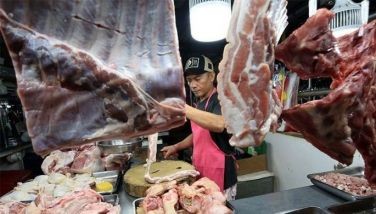Tax: A look at the silver lining
“Health is wealth” is a famous saying for a reason. With the increased of organic food, natural ingredients and the rise of participation from the public in health and wellness activities, I still at times, catch myself pondering on what it means to have a truly healthy lifestyle.
Growing up, we were taught by our parents that good health must be a priority. Some people even subscribe to superstitions of their grandmothers and ancestors to achieve true health and wellness despite being, at times, contrary to evidence-based medicine and research. Our teachers, during our early years of schooling, also taught us to strive to be healthy by exercise during PE classes, to consume food based on the food pyramid and by eating more vegetables and fruits. These reminders are everywhere nowadays and remain relevant for people of all ages. Even the 1987 Philippine Constitution requires the state to protect and promote the right to health of Filipinos and instill health consciousness among populace.
In response to this constitutional mandate, President Duterte approved and signed Republic Act (RA) No. 11467, the law codifying the government’s efforts to protect public health, and in ensuring equitable access and affordable healthcare services to every Filipino through the additional revenues for the implementation of RA No. 11223, otherwise known as the Universal Health Care (UHC) Act.
RA No. 11467, which took effect on Jan. 1, after publication, provides for certain amendments to several sections of the National Internal Revenue Code (NIRC) of 1997, as amended. In the hopes of decreasing the demand for sin products, RA No. 11467 increased the excise taxes, generally applicable on all manufacturers and importers of sin products such as distilled spirits and other tobacco products. The law also includes heated tobacco products and vapor products as additional products which will likewise be subjected to excise taxes. Apart from the imposition of additional excise tax on certain sin products, the law also extends the list of Value Added Tax (VAT) exempt transactions contained in the NIRC. Certain medicines for common illnesses such as high cholesterol, hypertension, and diabetes are now VAT exempt subject to certain conditions.
Increase in excise tax on sin products
With this enactment, sin products like distilled spirits which include whisky, brandy, rum, gin and vodka, and other similar products or mixtures will be charged with a 22 percent ad valorem tax on the net retail price (excluding excise tax and VAT) per proof, plus a specific tax to be imposed under the following rates beginning on the Jan. 1 of the following years: 2020: P42.00 per proof liter; 2021: P47.00 per proof liter; 2022: P52.00 per proof liter; 2023: P59.00 per proof liter; 2024: P66.00 per proof liter
For fermented liquors like beer, lager beer, ale, and porter, the excise tax will increase effective Jan. 1 of the following years: 2020: P35.00 per liter; 2021: P37.00 per liter; 2022: P39.00 per liter; 2023: P41.00 per liter; 2024: P43.00 per liter.
The specific tax on the abovementioned liquors may be subject to a six percent increase every year starting Jan. 1, 2025. Meanwhile, an amendment is also made on the imposition of excise tax on wines which is now set at P50.00 per liter. This may also be subject to six percent increase every year starting Jan. 1, 2021.
Heated tobacco products will now be taxed at an excise tax of P25.00 per pack of 20 units or packaging combinations of not more than 20 units, subject to an annual rate increase in accordance with the schedule below starting Jan. 1 of the following years: 2021: P27.50; 2022; P30.00; 2023: P32.50; 2024 onwards: five percent increase every year
Vapor products are now taxed at a rate of P37.00 per milliliter or a fraction thereof for nicotine salt or salt nicotine and P45.00 for every 10 milliliters or a fraction thereof for conventional “freebase” or “classic” nicotine. These rates are subject to a P5.00 increase annually beginning Jan. 1, of each year until 2023 and will rise by five percent every calendar year thereafter.
The excise tax provisions were operationalized through the Bureau of Internal Revenue’s (BIR) issuance of Revenue Memorandum Circular (RMC) No. 24-2020 dated Feb. 21, 2020 which provides transitory procedures for all taxpayers who are affected with the rules set forth in RA Nos. 10963 and 11346, as further amended by RA No. 11467.
VAT exemption of certain medicines
The law extends its list of VAT exempt transactions. The sale or importation of prescription drugs and medicines for fatal illnesses like diabetes, high cholesterol, and hypertension will now be exempted from VAT. Likewise, the sale or importation of medicines for cancer, mental illness, tuberculosis, and kidney diseases will be exempt from VAT effective Jan. 1, 2023.
The Department of Health (DOH) released a list of approved prescription drugs and medicines for this purpose. This list shall serve as a guide to all the sellers and end consumers to make them aware of the VAT-exempt drugs.
Enforcement
The law also gives the Food and Drug Administration (FDA) the power to monitor the manufacture, importation, sale, packaging, advertising, and distribution of heated tobacco products and vapor products.
To effectively implement the provisions of RA No. 11467, the President vetoed the requirement of a court order before the BIR can enter any house, building, or place to examine and search areas where tobacco products are kept. He believes that the phrase “upon order of the Court” is unnecessary as this unduly curtails the search and seizure powers of the BIR.
John Paul G. Penales is an associate from the tax group of KPMG R.G. Manabat & Co. (KPMG RGM&Co.), the Philippine member firm of KPMG International. KPMG RGM&Co. has been recognized as a Tier 1 tax practice and Tier 1 transfer pricing practice by the International Tax Review.
This article is for general information purposes only and should not be considered as professional advice to a specific issue or entity.
The views and opinions expressed herein are those of the author and do not necessarily represent the views and opinions of KPMG International or KPMG RGM&Co. For comments or inquiries, please email [email protected] or [email protected]
- Latest
- Trending


























